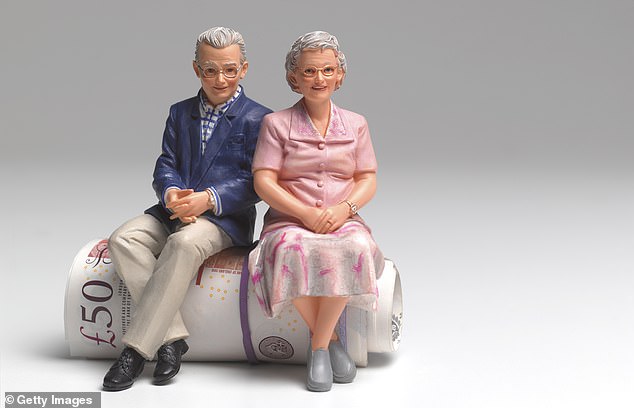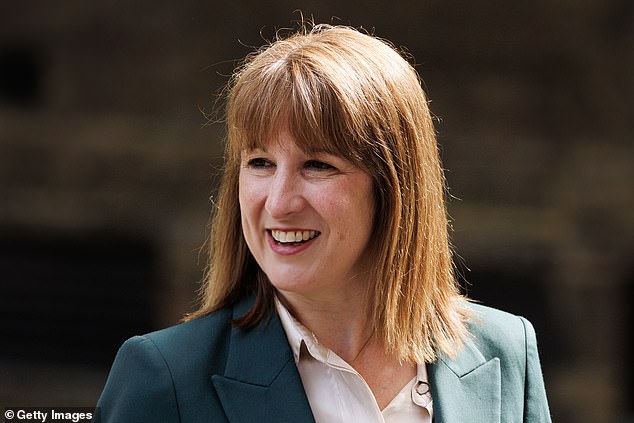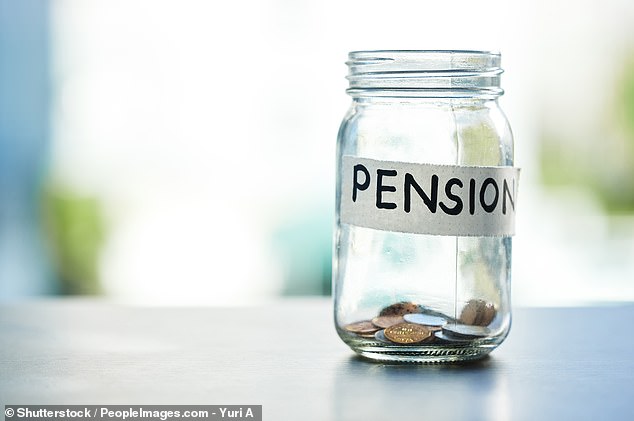Many pensioners feel victimised by Labour – and understandably so. Deprived last year of their universal right to winter fuel payment, they continue to be hit by a toxic mix of rising household bills and higher taxes on their income and savings.
Yet they refuse to lie down without an almighty fight. Buoyed by the Government’s partial U-turn on winter fuel payment, they have now set their sights on getting Chancellor Rachel Reeves to lift the freeze on the personal allowance, which has been stuck at £12,570 since 2021 – and is currently set to remain at this level until at least 2028.
The personal allowance is the slice of income you can earn or receive in a tax year (April 6 to April 5) that is free from tax.
Any income above it then attracts income tax, starting at 20 per cent. It was first frozen by the Tories in response to the 2020 lockdown.
Initially, the freeze was for four years until the tax year starting April 6, 2026, but it was extended for another two years in the wake of the 2022 financial crisis sparked by Liz Truss’s unfunded tax cuts.
So far, Rachel From Accounts has turned a deaf ear to requests for the personal allowance to be increased, arguing that the public purse can’t afford it.

Stealth tax: Since the personal allowance was frozen in 2021, it has brought millions of low-income people – young and old – into the income tax regime
Indeed, Labour (Keir Starmer in particular) has yet to rule out extending the freeze for a further two years. Yet in the run-up to the autumn Budget, Ms Reeves is coming under renewed pressure from pensioner groups, low-income tax reform groups and some politicians (current and former) to play fair.
They argue that if the allowance had been increased in line with inflation since 2021, it would now be worth around £15,518.
And with the full new state pension currently worth £11,973, they believe it won’t be long – maybe next year, but more likely the year after – before those wholly dependent on this payment to see them through retirement will be paying tax on a part of it.
This is a consequence of the triple lock, which promises state pensioners an annual increase based on the higher of inflation, average earnings or 2.5 per cent.
Currently, a 5 per cent increase, based on prevailing earnings growth, would take the full new state pension payable from next April just above the £12,570 personal allowance.
Yesterday, Sir Steve Webb and Baroness (Ros) Altmann, both former pension ministers, told Money Mail that the Government should consider ending the personal allowance freeze.
‘Bringing millions of pensioners into the tax net seems pretty inefficient and bureaucratic,’ Sir Steve said. ‘We need a sensible conversation about where tax should start relative to the average wage or average income of pensioners.’
He added that April 2026 or April 2027 did not mark a ‘new line in the sand’ just because the full new state pension could exceed the tax threshold.
‘Lots of pensioners already pay income tax purely on their state pension,’ he said. ‘For example, those on the old state pension where their basic pension plus top up Serps (state earnings related pension scheme) is worth more than £242 a week.’
Lady Altmann said she also supported an increase in the personal allowance for those pensioners with no other income, as did Tom Selby, director of public policy at investing platform AJ Bell. ‘Retirees are facing an ever-growing tax iceberg,’ warned Mr Selby.

Desperate: Rachel Reeves has so far turned a deaf ear to requests for the tax-free personal allowance to be increased, arguing that the public purse can’t afford it
Pensioner group Silver Voices continues to campaign for an increase in the allowance of at least £1,000. Its petition, launched on website Change.org, has attracted more than 127,000 signatories and continues to attract supporters despite being rebuffed by the Treasury. Dennis Reed, director of Silver Voices, told Money Mail: ‘This old-age tax trap threatens to undermine the whole pensions system.
‘To tax what is a basic minimum safety net makes no sense and will increase pensioner poverty. The Chancellor must take action in the autumn Budget to raise the tax threshold for older people.’
Others, such as pensioner Patrick Rigg, want bolder action. He believes the personal allowance should be raised to £20,000.
Mr Rigg, 77, from Bournemouth, Dorset, argues that such a move by the Government would not just relieve the financial pressure on pensioners but on low-income households, too, by providing a boost to consumer spending and regenerating high streets up and down the country.
Having spent more than 30 years working for HM Revenue & Customs (HMRC), the retiree believes such a big increase in the personal allowance would also stop the tax office being mired in additional work ensuring pensioners are paying the right amount of tax.
He says it would allow HMRC to concentrate its resources on cracking down on the black economy and ensuring high-net worth individuals are not evading tax.
He told Money Mail: ‘The present freeze on the personal allowance impacts unfairly on the poorer members of society, including many pensioners.’
A petition earlier this year calling for a £20,000 personal allowance attracted more than 280,000 supporters. It triggered a debate in the House of Commons, but the Government said it would reduce tax receipts ‘substantially’, ‘decreasing funds available for the UK’s hospitals, schools and other essential public services’.
Since the personal allowance was frozen in 2021, it has brought millions of low-income people – young and old – into the income tax regime.
According to data released last month by HMRC, 39.1million people will pay income tax this year – six million more than four years ago, with nearly a third of the increase accounted for by retirees older than state pension age who now pay tax on their retirement income.

Threat: Campaigners fear that if the personal allowance is not increased, even people wholly dependent on state pensions will have to start paying tax
Yet the income tax net will catch an ever wider number in the years ahead unless the personal tax threshold is de-iced.
Figures from the Office for Budget Responsibility indicate that in the tax year starting April 6, 2027, more than four million people will become ‘new’ taxpayers with the freezing of the personal tax thresholds generating the Government additional annual tax revenue heading towards £50billion.
Rachael Griffin, tax expert at wealth manager Quilter, has described the threshold freezing as ‘one of the most punishing and wide-reaching stealth tax grabs in recent history’.
She believes the Government is ‘hooked’ on the tax revenues from these freezes and warns that, ‘like any addiction, it may prove difficult to kick even when the damage becomes clear’.
It’s the same with the savings tax grab. As a result of a long-term freezing of the annual personal savings allowance – stuck since 2016 at £1,000 for basic rate taxpayers, £500 for higher rate taxpayers – more people are paying tax on their savings interest.
Data released yesterday by Nottingham Building Society shows that more than 3.35 million people are expected to pay tax on their savings interest this year – up from 3.06 million five years ago.
It says the figures confirm ‘a growing and often hidden tax burden on ordinary savers’ and is calling on the Government not to go ahead with a reduction in the annual £20,000 cash Isa allowance which shields savers’ deposits from tax. It’s an issue Money Mail continues to campaign on.
So, hands off our cash Isas, Chancellor. And surely it’s time to listen to the likes of Silver Voices’ Mr Reed and pensioner Mr Rigg – and think about ending the big personal allowance freeze.
jeff.prestridge@dailymail.co.uk
SIPPS: INVEST TO BUILD YOUR PENSION

AJ Bell

AJ Bell
0.25% account fee. Full range of investments

Hargreaves Lansdown

Hargreaves Lansdown
Free fund dealing, 40% off account fees

Interactive Investor

Interactive Investor
From £5.99 per month, £100 of free trades

InvestEngine

InvestEngine
Fee-free ETF investing, £100 welcome bonus
Prosper
Prosper
No account fee and 30 ETF fees refunded
Affiliate links: If you take out a product This is Money may earn a commission. These deals are chosen by our editorial team, as we think they are worth highlighting. This does not affect our editorial independence.
